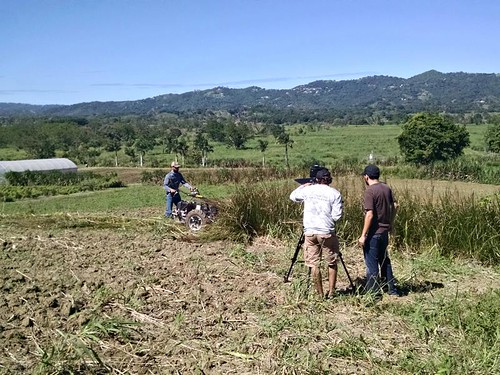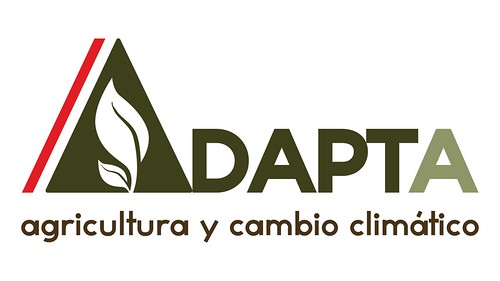
We are living in historic moments in the world’s response to climate change. Last December in Paris, delegates from 196 countries signed an agreement to work towards curtailing greenhouse gas emissions and to keep global warming to “well below” 2 °C degrees. This is a big step, but there is still much work to be done and the agricultural sector has an important role to play. Agriculture, forestry, and land degradation contribute just under a quarter of anthropogenic GHG emissions, mainly from deforestation and agricultural emissions from livestock, soil and nutrient management. Climate change also poses a great challenge for food security and nutrition. It can reduce yields and affect where and how food is produced. As the risks of natural disasters increase, farmers need to modify how they produce food in order to become more resilient to prolonged droughts, excessive rains, floods, and more intense storms.
Farmers in the Caribbean are among the most strongly affected by climate change, as Caribbean countries are in general highly vulnerable to climate change due to their geography and socioeconomic status. So what farming practices can tropical producers use to adapt and minimize the impacts of climate change? The USDA Caribbean Climate Hub, located at the US Forest Service International Institute of Tropical Forestry in Puerto Rico, is partnering with Universities and farmers in the U.S. Caribbean to release ADAPTA, a series of demonstration projects that communicate the best adaptive practices available to tropical producers.

As part of the series, we are developing videos and factsheets that highlight adaptation practices in dairy, plantain, fruit and vegetable, and forest production. ADAPTA is part of an integrated communications plan to deliver climate adaptation practices to a diverse set of producers that builds on the assessment of risk and vulnerabilities that we completed last year to better understand the potential effect of climate change on agriculture and forestry in Puerto Rico and the U.S. Virgin Islands.
“Cattle & Dairy Farming in the Tropics” is the first video released and highlights adaptation practices for tropical dairy producers. Dairy is an important farming practice in Puerto Rico and St. Croix, involving more than 50,000 acres and generating over 25,000 jobs. Drought and heat have been hitting producers hard and have had detrimental effects on the livestock and dairy industries by making cattle more susceptible to worms, ticks, and dairy cattle becomes stressed and produce less milk. As grasses died due to lack of rain, producers in the U.S. Virgin Islands were forced to take measures ranging from collecting tree limbs and branches for fodder, to relying on imported feed and even culling herds. Pastures were so over taxed, that many will have to be re-sown completely at great cost to farmers. In Puerto Rico, producers saw their costs rise as they relied ever more heavily on imported feed. Many also saw their production go down as heat stress and lack of nutrients took their tolls on local herds.
Unfortunately, climate models in the region are predicting dramatic changes in rainfall cycles, in which prolonged periods of drought are interrupted by intense rainfall events. However, there are measures that farmers can take to reduce the impacts of drought and increased temperatures, as showcased in the first video of the ADAPTA series. We believe Caribbean producers are some of the most innovative in the world. Through this project we hope to highlight and share how local farmers are adapting to remain successful in the face of climate change and other challenges.
The Caribbean Hub is promoting cooperation by providing open venues and forums to address climate vulnerability as part of the USDA Regional Climate Hub comprehensive strategy to help farmers mitigate and adapt to climate change. The Climate Hubs are integrating efforts of the USDA Agricultural Research Service, National Resource Conservation Service, the US Forest Service, and other USDA agencies with state governments, local universities, and non-profits to help coordinate and streamline efforts to ensure the vitality of US working lands in the face of climate change.
Watch as Dr. Guillermo Ortiz of the University of Puerto Rico and rancher Neftali Lluch of the Lajas Valley in Puerto Rico discuss various practical steps to combat rising temperatures and prolonged drought. Credit: University of Puerto Rico
English:
Spanish:

